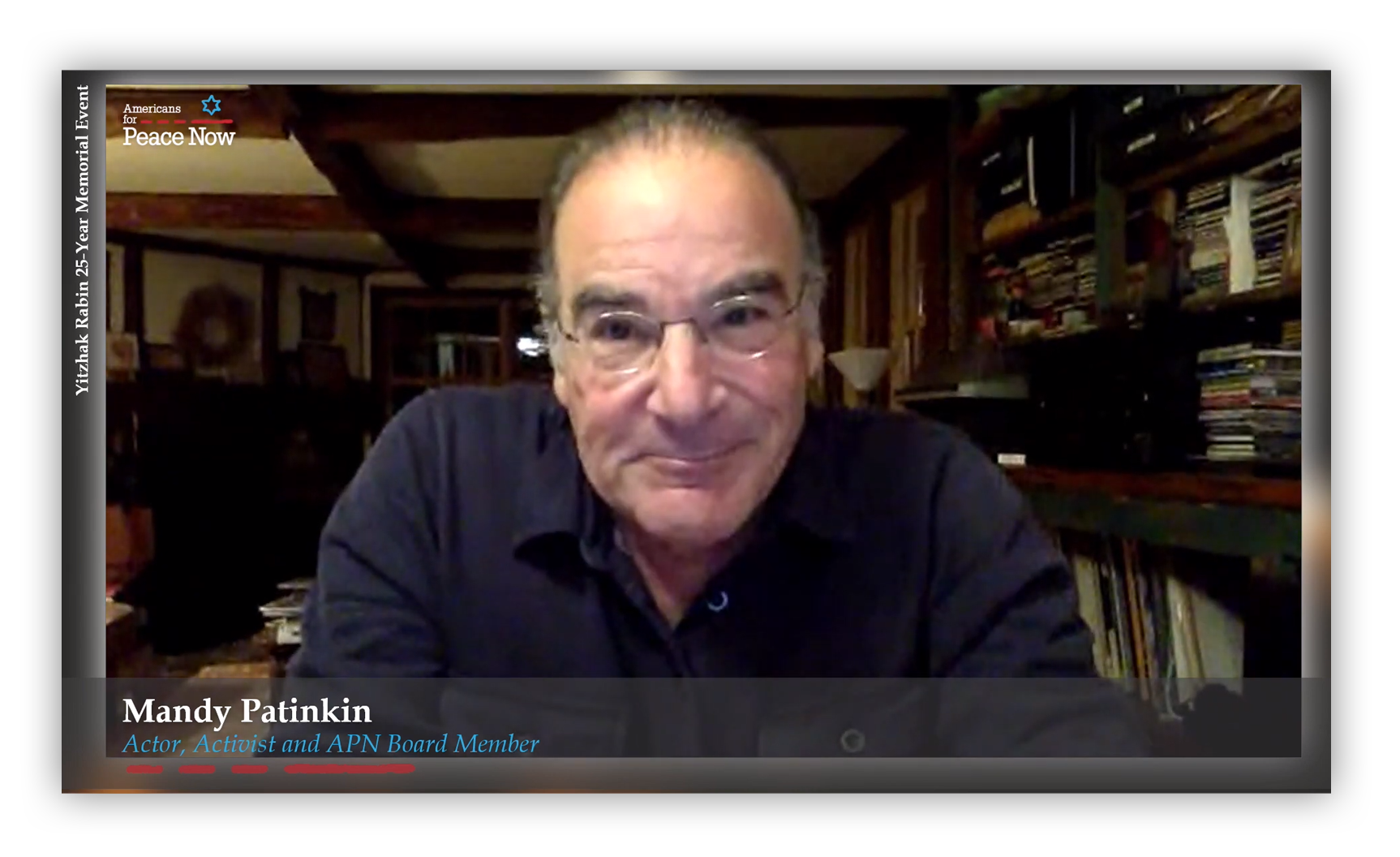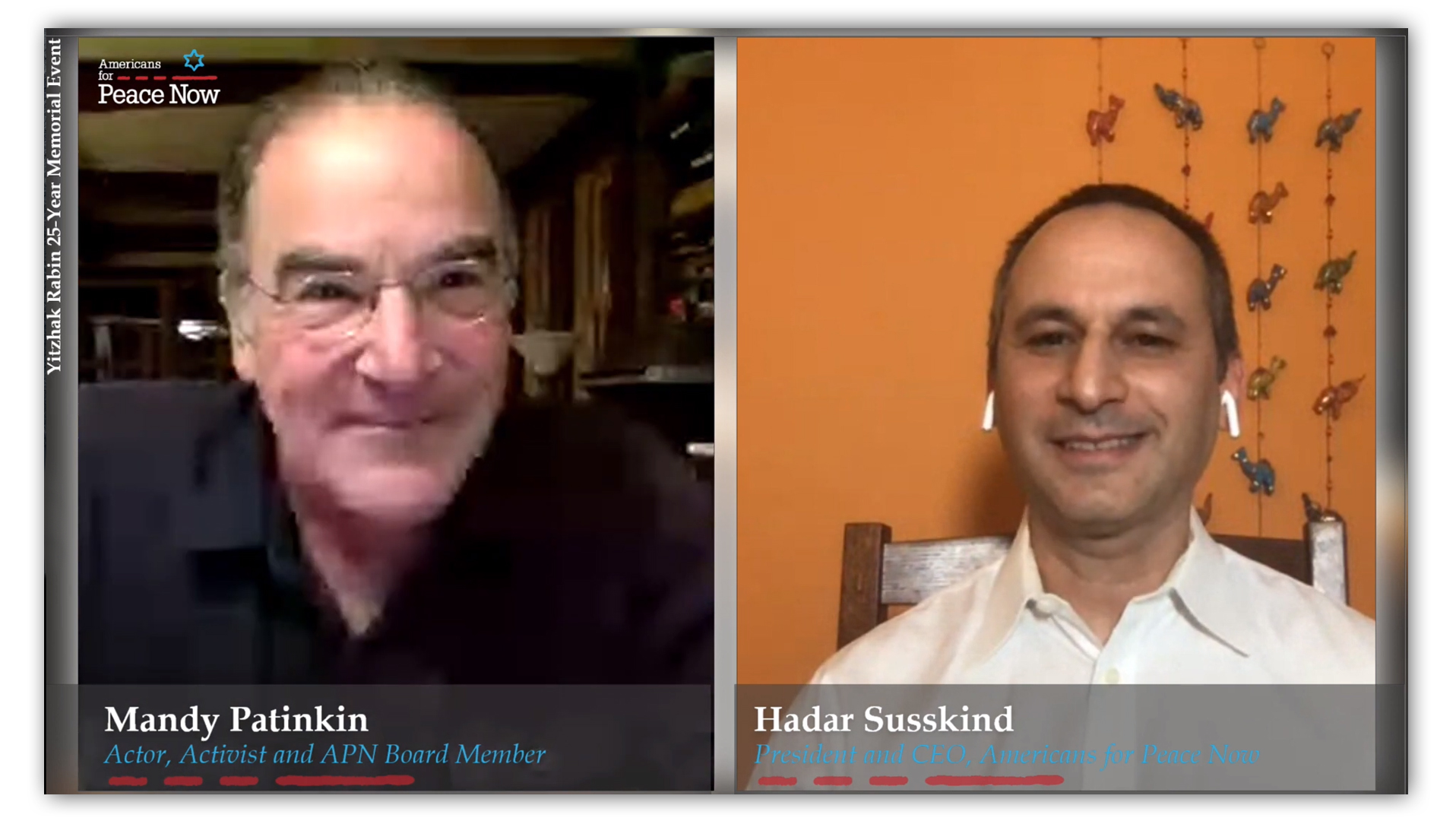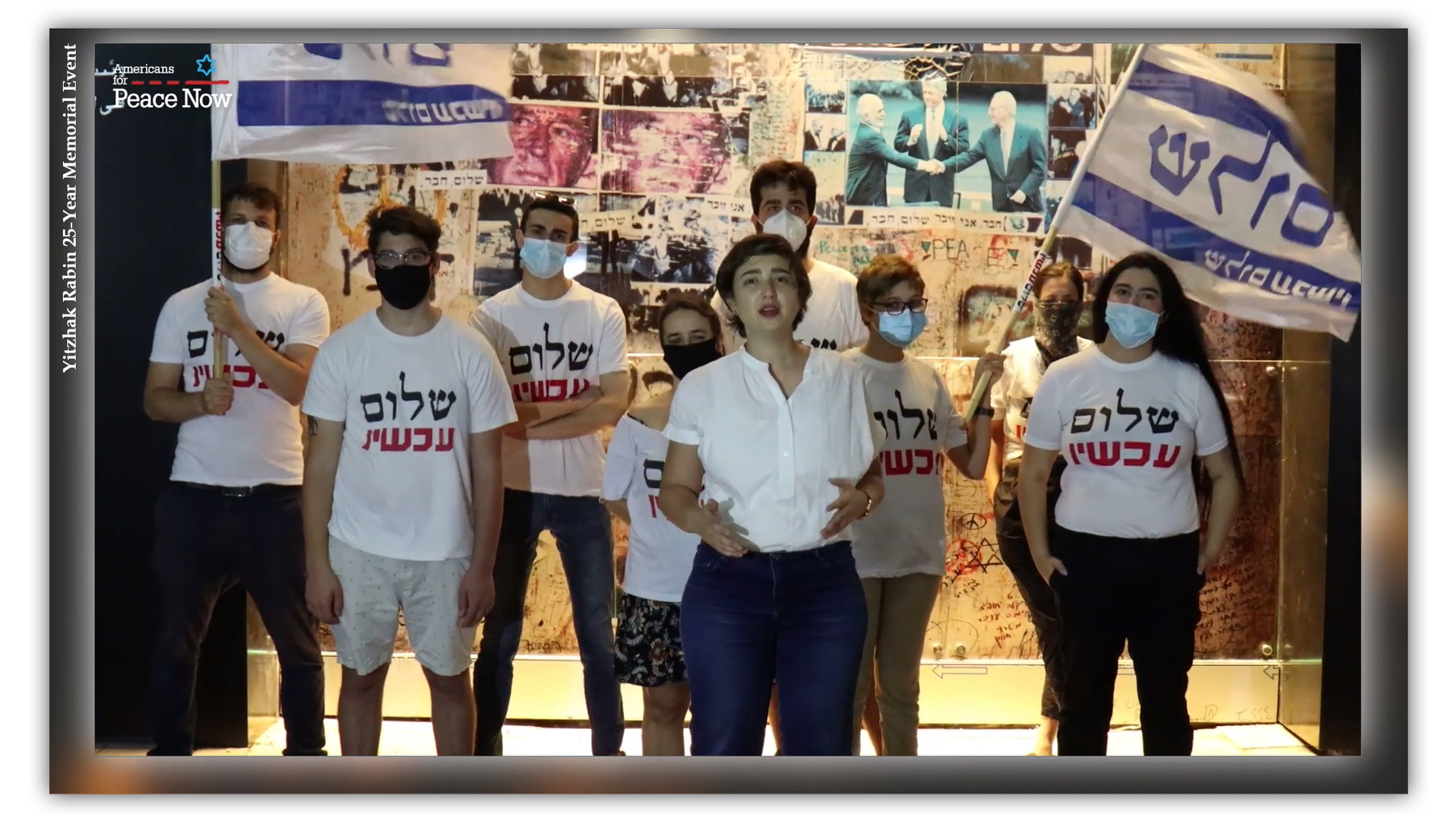Today, on the 25th anniversary of the assassination of Israel’s Prime Minister Yitzhak Rabin, we at APN honor
Rabin’s legacy by continuing to build the movement for Israeli-Palestinian peace.
APN’s President and CEO Hadar Susskind said: “Yitzhak Rabin was a soldier and a general who fought for his
country in a time of conflict. But his legacy is that of a man who recognized the legitimate
national aspirations of the Palestinian people, who chose peace over war, who chose to extend his hand to
those who had been his enemies, and who ultimately lost his life in the pursuit of peace.
As we honor that legacy, we remind supporters of Israeli-Palestinian peace worldwide that the conflict between the
two peoples is an existential threat to both, that it must and can be resolved, and that determined leadership such
as Rabin’s is necessary for progress toward resolution.
Together with our Israeli colleagues at Israel’s Peace Now movement, APN is determined to help achieve Rabin’s goal
of Israeli-Palestinian peace and reconciliation.
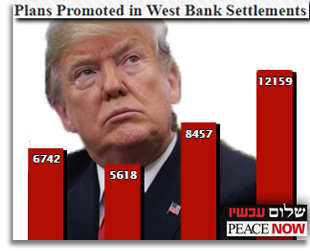 Donald Trump's administration greenlighted a surge in settlement
construction and planning and attempted to set in motion Israel's formal annexation of the West Bank by Israel.
Donald Trump's administration greenlighted a surge in settlement
construction and planning and attempted to set in motion Israel's formal annexation of the West Bank by Israel.
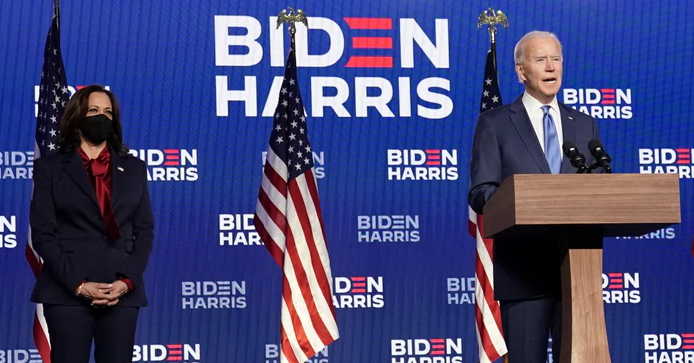 Americans for Peace Now (APN) congratulates Joseph Biden on his election as
the 46th President of the United States, and Kamala Harris, our nation's next Vice President, and wishes them
success in their pursuit of a more just and responsible foreign policy.
Americans for Peace Now (APN) congratulates Joseph Biden on his election as
the 46th President of the United States, and Kamala Harris, our nation's next Vice President, and wishes them
success in their pursuit of a more just and responsible foreign policy.
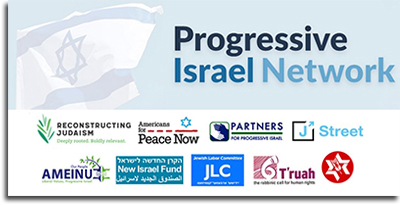 In response to reports that the State Department may baselessly
label prominent human rights organizations ‘antisemitic,’ nine organizations from the Progressive Israel
Network released the following statement:
In response to reports that the State Department may baselessly
label prominent human rights organizations ‘antisemitic,’ nine organizations from the Progressive Israel
Network released the following statement:

